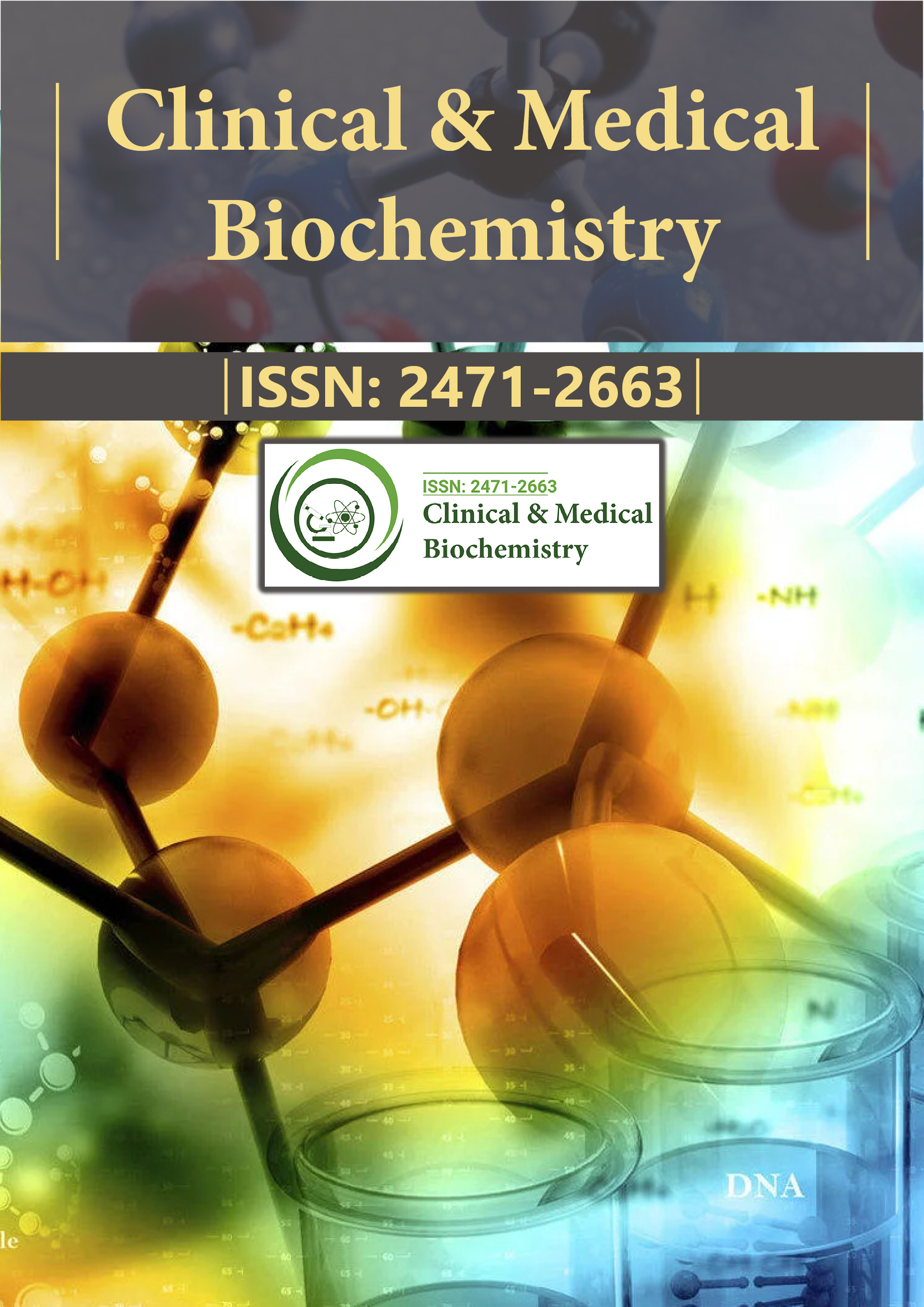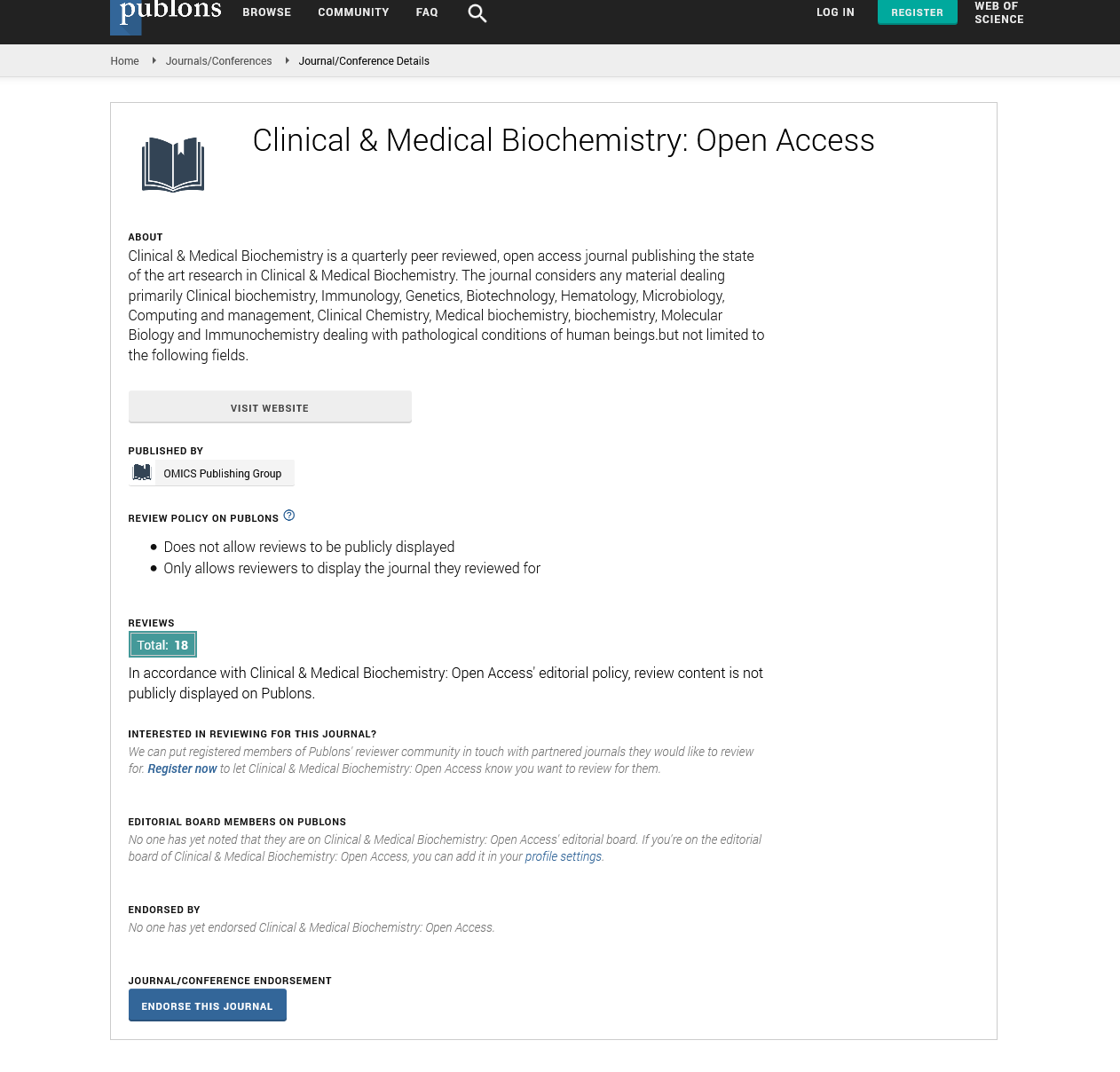Indexed In
- RefSeek
- Directory of Research Journal Indexing (DRJI)
- Hamdard University
- EBSCO A-Z
- OCLC- WorldCat
- Scholarsteer
- Publons
- Euro Pub
- Google Scholar
Useful Links
Share This Page
Journal Flyer

Open Access Journals
- Agri and Aquaculture
- Biochemistry
- Bioinformatics & Systems Biology
- Business & Management
- Chemistry
- Clinical Sciences
- Engineering
- Food & Nutrition
- General Science
- Genetics & Molecular Biology
- Immunology & Microbiology
- Medical Sciences
- Neuroscience & Psychology
- Nursing & Health Care
- Pharmaceutical Sciences
Research Article - (2022) Volume 8, Issue 4
Regulatory Issues in Edible Vaccine Clinical Trials
Jyothi Rawat*Received: 24-Jun-2022, Manuscript No. CMBO-22-17575; Editor assigned: 28-Jun-2022, Pre QC No. CMBO-22-17575(PQ); Reviewed: 12-Jul-2022, QC No. CMBO-22-17575; Revised: 19-Jul-2022, Manuscript No. CMBO-22-17575(R); Published: 28-Jul-2022, DOI: 10.35841/2471-2663.22.8.130
Description
It is still unclear if the edible vaccines would regulate under food, drugs, or agricultural products, and which vaccine component is the antigen itself, genetically modified food, or transgenic seeds would be granted a license. The regulatory agencies would closely scrutinize them to make sure they never made it into the food supply. This would require separate storage and processing facilities as well as the separation of food crops from medicinal plants in greenhouses to prevent outcrossing. Although edible vaccines are considered "Genetically Modified" plants, it is believed that because they are meant to save lives, there won't be any major issue around them.
Future vaccinations are edible vaccines, but some challenges yet to be overcome before this can happen. Edible vaccines go through rigorous laboratory and clinical testing, just like every other product subject to Food and Drug Administration regulation, to learn more about their safety, effectiveness, purity, and potency. These studies can only be performed after sufficient information on the quality of nonclinical safety has been collected.
Successful expression of antigens in plants has been demonstrated in the past. Vaccines have also been tested for their efficacy in humans. The results of the first phase of the first human clinical trial of the edible vaccine were published in Nature Medicine (Blaine P. Friedlander, Boyce Thomson Institute of Plant Research), which indicated that consumption of servings of raw potatoes resulted in immunity to specific diseases. Human clinical research was guided by the Dr. Carol Tacket at the Center for Vaccine Development, University of Maryland School of Medicine in Baltimore. In the first stages of human testing, potatoes eaten by volunteers contained a vaccine against traveler's diarrhea, a common illness caused by an intestinal infection caused by E.coli that contaminates food and water. The clinical trial was pre-approved by the Food and Drug Administration.
Scientists began investigating the application of this method for giving different antigens after being encouraged by the findings of this investigation. The potato vaccine booster was created by Thanavala's team which is to be used in addition to the injected hepatitis B vaccine. Clinical trials are continuing in phase II and phase I for patients who have already received a vaccination. In 2000, Tacket and his colleagues investigated how the human immune system responded to the capsid protein of the Norwalk virus produced in potatoes. 19 out of 20 volunteers, or 95%, showed some immune response, even if the increase in antibodies in some cases was rather moderate. The coronavirus, which causes severe acute respiratory syndrome, was successfully immunized against in the same year by Pogrebnyak's laboratory (SARS). The coronavirus spike (S1) protein is highly expressed on tomato and tobacco plants. Following the administration of S1 protein from tobacco roots, mice were first given lyophilized tomato fruit. Their sera showed large IgG2a and IgG2b immune responses, as well as high IgG1 immune responses. Additionally, research is being done to modify plants to produce a range of useful monoclonal antibodies.
In the first human investigation of a transgenic plant vaccine meant to elicit active immunity, 14 adult volunteers were given their choice of 100 g of transgenic potatoes, 50 g of transgenic potatoes, or 50 g of wild-type potatoes. The transgenic potatoes ranged in LT-B content from 3.7 g/g to 15.7 μg/g. Due to the promoter's tissue specificity and the variable dose per gram of potato, LT-B was expressed to varying degrees in the various potato tissues. Although the potatoes used in this work were consumed raw, further research revealed that transgenic potatoes expressing the cholera toxin B subunit could be cooked for three minutes to soften the tissue with just a slight loss of the CT-B pentameric GM1-binding form. After immunization, serologic reactions were also discovered. Ten out of the eleven volunteers who consumed transgenic potatoes (91%) eventually produced IgG anti-LT, with half of those responses occurring soon after the first dosage. Six out of the eleven volunteers (about 55%) experienced a fourfold increase in serum IgA anti-LT.
For the first time, research funded by the NIAID has demonstrated that an edible vaccine can safely elicit strong immune responses in humans. The Phase 1 proof-of-concept trial study's objective was to show that a human immunological response might be elicited by an edible vaccination. Bitesized chunks of raw potato that had been genetically altered to produce a portion of the diarrhea-causing toxin released by E. coli were given to volunteers. 14 healthy persons participated in the trial; 11 were assigned at random to receive the genetically modified potatoes, while the other three received regular potatoes. The volunteer's blood and stool samples wereperiodically taken by the researcher to assess the vaccine's capacity to elicit intestinal and systemic immune responses. Everyone tolerated the potatoes well, and no one reported any severe negative side effects.
The application of this method for delivering different antigens is being investigated by NIAID-funded researchers. Other gut infections also have edible vaccines under development. The Norwalk virus, a common cause of diarrhoea, may be prevented by eating potatoes and bananas, and hepatitis B may be prevented by eating potatoes and tomatoes.
Citation: Rawat J (2022) Regulatory Issues in Edible Vaccine Clinical Trials. Clin Med Bio Chem. 8:130.
Copyright: © 2022 Rawat J. This is an open-access article distributed under the terms of the Creative Commons Attribution License, which permits unrestricted use, distribution, and reproduction in any medium, provided the original author and source are credited.

